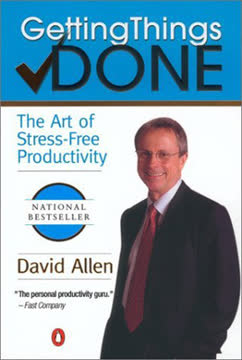重点摘要
1. 组织你的思维以应对信息过载
我们的基因尚未完全适应现代文明的需求,但幸运的是,人类的知识已经——我们现在更好地理解如何克服进化的局限。
信息过载是真实存在的。 在当今世界,我们比以往任何时候都接收到更多的信息。普通美国人每天在工作之外处理34GB或10万个字的信息。这种持续不断的数据流入会压垮我们的认知能力,导致压力、生产力下降和决策失误。
我们的脑力是有限的。 人类大脑进化来处理狩猎采集生活的信息负荷,而不是现代生活的复杂性。我们的注意系统每秒只能处理大约120比特的信息,勉强足够同时理解两个人的对话。
应对信息过载的方法:
- 开发外部化信息的系统(如待办事项清单、日历)
- 练习正念并专注于一次完成一项任务
- 为不同活动创建指定空间
- 通过写下干扰思维的想法定期“清理大脑”
- 明智地利用技术来管理信息流
2. 利用思维漫游模式的力量
白日梦和思维漫游,我们现在知道,是大脑的自然状态。这解释了为什么我们在此之后感到如此清新,以及为什么假期和小憩可以如此恢复活力。
大脑有两种主要模式。 中央执行模式是专注和任务导向的,而思维漫游模式则允许创造性思维和问题解决。两者对于最佳认知功能都是必不可少的。
创造力在思维漫游中蓬勃发展。 许多突破性的想法和解决方案在放松或白日梦期间出现。这是因为思维漫游模式允许不同想法和概念之间有更大的连接性。
利用思维漫游的力量:
- 在一天中安排定期休息
- 参与促进放松的活动(如在自然中散步、冥想)
- 给自己留出无结构思考的时间
- 注意在思维漫游期间出现的想法
- 平衡专注工作和放松时间
3. 利用大脑的自然分类系统
类别通常反映这些共现:鸟类类别意味着动物会有翅膀和羽毛(尽管有例外,如新西兰的无翼几维鸟和某些现已灭绝的无羽毛鸟类)。
分类是基本的。 人类大脑自然地将信息组织成类别以理解世界。这种天生的能力使我们能够高效地处理大量数据,并根据有限的信息快速做出决策。
灵活的类别是关键。 尽管我们的大脑创建了严格的类别,但保持思维的灵活性是至关重要的。认识到类别可以有模糊的边界和例外,有助于我们更有效地适应新信息和情况。
利用大脑的分类系统:
- 根据有意义的类别组织你的物理和数字空间
- 创建允许轻松重新组织的灵活系统
- 使用视觉提示来强化类别(如颜色编码、标签)
- 定期审查和更新你的分类系统
- 随着新信息的出现,愿意调整类别
4. 外部化记忆以释放心理资源
秘密在于建立系统来欺骗自己——欺骗我们的脑子——在需要时保持专注。
卸载信息是至关重要的。 我们的大脑在存储和处理信息方面的能力是有限的。通过外部化记忆——将信息从头脑中转移到外部世界——我们可以释放认知资源用于更重要的任务。
外部系统提高生产力。 通过创建可靠的存储和检索信息的系统,我们减少了试图记住一切的心理负担。这使我们能够专注于更高层次的思考和创造性问题解决。
外部化记忆的策略:
- 使用物理或数字待办事项清单
- 维护详细的日历系统
- 为重要物品创建指定空间(如钥匙、钱包)
- 利用记事应用或物理笔记本
- 开发一致的文件系统
- 利用技术进行提醒和警报
5. 掌握高效时间管理的艺术
休息也是重要的。专家建议每九十分钟至少起身走动一次,并安排每日的身体活动。
时间是有限的资源。 有效的时间管理对于生产力和整体福祉至关重要。通过有条理地安排时间,我们可以在减少压力和倦怠的同时完成更多任务。
平衡是关键。 最佳的时间管理涉及平衡专注工作时间与定期休息和思维漫游时间。这种方法既能提高生产力,又能保持创造力,同时维护整体认知健康。
时间管理策略:
- 使用番茄工作法(25分钟专注工作,5分钟休息)
- 在高峰生产力时间安排重要任务
- 将相似任务分组以最小化上下文切换
- 设定现实的目标并优先处理任务
- 在活动之间留出缓冲时间
- 定期重新评估和调整你的日程安排
- 将身体活动和放松纳入日常生活
6. 使用概率和统计做出更好的决策
医疗决策常常感觉就像在两个负面之间做选择。
理解概率是至关重要的。 许多重要决策,尤其是在医疗领域,涉及权衡概率和潜在结果。掌握基本的统计知识可以显著改善生活各方面的决策。
警惕认知偏差。 我们的大脑天生不擅长直观理解概率。我们经常受到各种认知偏差的影响,尤其是在处理复杂的统计信息时,这可能导致糟糕的决策。
更好决策的工具:
- 学会使用四格表分析概率
- 在评估风险时考虑基准率
- 注意认知偏差(如锚定效应、可得性启发)
- 寻求多种意见和信息来源
- 对复杂决策使用期望值计算
- 记住相关性不等于因果关系
- 考虑短期和长期的后果
7. 结构化组织以实现最佳绩效
组织可以有扁平(水平)或深层(垂直)层级,这对员工和管理者的效率和效果有很大影响。
组织结构很重要。 公司的结构方式会显著影响其效率、沟通和整体绩效。不同的结构适合不同类型的组织和目标。
平衡控制与灵活性。 有效的组织在保持控制和允许灵活性与创新之间找到平衡。这通常涉及层级结构与各级别授权决策的结合。
组织结构的关键考虑因素:
- 将结构与组织目标和文化对齐
- 考虑组织的规模和复杂性
- 平衡专业化与跨职能协作
- 实施清晰的沟通渠道
- 允许适当的自主权和决策
- 定期评估和调整结构
- 在整个组织中培养信任和道德行为的文化
最后更新日期:
FAQ
What’s The Organized Mind about?
- Information Overload Focus: The Organized Mind by Daniel J. Levitin examines how the modern influx of information impacts our cognitive processes. It explores the challenges of managing this overload and its effects on attention and memory.
- Organizational Strategies: The book provides practical strategies for organizing personal and professional spaces to enhance productivity and reduce stress. Levitin emphasizes externalizing memory and categorization to streamline decision-making.
- Cognitive Science Insights: Levitin integrates findings from neuroscience and psychology to explain how our brains process information. He discusses evolutionary aspects of cognition and how they can be adapted to modern challenges.
Why should I read The Organized Mind?
- Practical Solutions: The book offers actionable advice for managing disorganization and information overload, helping readers reclaim time and mental clarity.
- Understanding the Brain: Readers gain insights into how their brains work, particularly regarding attention and memory, empowering them to make better decisions.
- Expert Insights: Levitin, a neuroscientist and musician, presents complex ideas in an engaging manner, making the book both informative and enjoyable.
What are the key takeaways of The Organized Mind?
- Cognitive Overload Awareness: Recognizing that our brains are not equipped to handle today's information volume is crucial for managing cognitive load.
- Externalizing Memory: Off-loading memory tasks to external systems like lists and calendars reduces mental clutter and enhances focus.
- Categorization Importance: Creating meaningful categories for information and objects improves retrieval and decision-making, reducing stress.
How does Daniel J. Levitin define cognitive overload in The Organized Mind?
- Cognitive Overload Explained: Levitin describes it as a state where information exceeds our brain's processing capacity, leading to decision fatigue and stress.
- Evolutionary Perspective: Our brains evolved for simpler environments, and the modern world presents challenges they aren't designed to manage.
- Impact on Daily Life: Cognitive overload affects everyday tasks, from simple decisions to complex problem-solving, necessitating effective organizational strategies.
What strategies does The Organized Mind suggest for organizing our homes?
- Designated Places: Having specific locations for items like keys and glasses reduces the likelihood of losing them and leverages spatial memory.
- Categorization Systems: Creating categories for similar items simplifies retrieval and reduces clutter, streamlining processes like cooking.
- Use of Affordances: Utilizing design features that suggest how to use an object enhances the ability to find and use items efficiently.
How does The Organized Mind explain the relationship between attention and memory?
- Interconnected Systems: Attention and memory are closely linked; we cannot remember what we do not pay attention to.
- Attention as a Filter: Attention acts as a filter, determining what information enters our conscious awareness, essential for managing stimuli.
- Cognitive Load Management: Improving attention control enhances memory retention, with techniques like mindfulness strengthening this connection.
What role does technology play in organizing our minds according to The Organized Mind?
- Digital Tools: Technology aids organization through tools like smartphones and digital calendars, helping manage tasks and reminders.
- Information Overload: However, technology can contribute to overload if not used mindfully, with constant notifications distracting focus.
- Balancing Technology Use: Finding a balance between leveraging technology and avoiding its pitfalls is key to maintaining mental clarity.
How does The Organized Mind address decision-making?
- Cognitive Overload: Decision-making is challenging due to cognitive overload, especially with complex choices, necessitating simplification.
- Expected Value: Weighing potential outcomes against probabilities helps in making informed choices.
- Bayesian Thinking: Updating probabilities based on new information allows for more accurate risk and benefit assessments.
What is the significance of categorization in The Organized Mind?
- Cognitive Efficiency: Categorization simplifies complex information, making it easier to process and remember, essential for modern navigation.
- Hierarchical Structures: Creating hierarchical categories organizes information effectively, enhancing retrieval efficiency.
- Flexibility in Categorization: Categories can be flexible and context-dependent, allowing adaptation to dynamic environments.
How does The Organized Mind suggest we manage distractions?
- Identifying Distractions: Recognizing primary sources of distraction, whether digital, environmental, or internal, is crucial for management.
- Creating Focused Environments: Decluttering workspaces and minimizing noise help create environments conducive to focus.
- Mindfulness Techniques: Practices like meditation and deep breathing enhance focus and reduce distractions.
What role does sleep play in The Organized Mind?
- Memory Consolidation: Sleep is vital for memory consolidation, allowing the brain to process and integrate information.
- Cognitive Function: Adequate sleep is essential for optimal cognitive function, including attention and decision-making.
- Sleep Cycles: Understanding REM and NREM stages helps prioritize sleep for better mental organization.
How does The Organized Mind address the concept of transactive memory?
- Definition of Transactive Memory: A collective memory system shared among groups, where individuals rely on each other for information.
- Applications in Teams: Enhances team performance by allowing specialization in different knowledge areas, with effective communication key.
- Implications for Personal Organization: Creating networks of information sources streamlines decision-making and improves knowledge access.
评论
《有序的头脑》评价褒贬不一。一些人称赞其对神经科学和组织技巧的见解,认为其内容丰富且发人深省。另一些人则批评其篇幅过长、重复性高且缺乏重点,觉得它偏离了中心主题。读者们欣赏其科学方法,但指出该书可以通过更好的编辑来提升质量。许多人发现书中关于大脑功能和生产力的信息非常有价值,而另一些人则认为它未能提供实用的建议。总体而言,关于其实用性和可读性的意见差异很大,有些人认为它必不可少,而另一些人则感到失望。
Similar Books

















